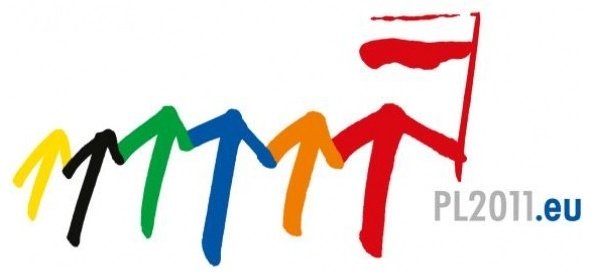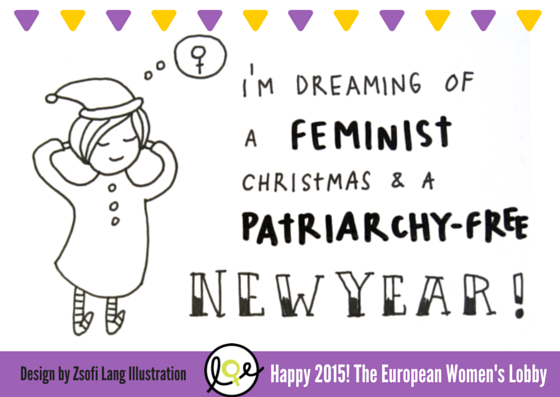[Brussels, 30 May 2011] On 01 July 2011, the Presidency of the Council of the European Union (EU) will pass from Hungary to Poland. The European Women’s Lobby (EWL), with more than 2500 member organisations the largest association of women’s organisations in the EU, calls on the Polish Presidency to continue to be a driving force for women’s rights in Europe and, in particular, to ensure progress in the adoption of gender-related legislation which is currently on the table, to ensure the full integration of a women’s rights and gender equality perspective in all European social and economic policies, including strands of the Europe2020 Strategy and to make sure that in the context of the negotiations of the new Multi Annual Framework 2014+, adequate and sustainable funding is allocated to activities related to human rights, including women’s rights, social inclusion and civil society.
Furthermore, the EWL hereby expresses its expectation that the Polish Presidency will provide during its tenure progressive and ambitious leadership to the Council of the European Union in its policy and legislative tasks, in relation to issues related to women’s human rights, in particular the fight against all forms of male violence against women and the guarantee of women’s sexual and reproductive rights.
The European Women’s Lobby calls on the Polish Presidency to:
1. Take a leadership role in the Council negotiations aiming at reaching an agreement on the revision of the maternity leave Directive. This revision should include the increase of maternity leave provisions from 14 weeks to 20 weeks and the introduction of two weeks leave for new fathers, both fully paid, as provided for in the legislative Resolution adopted by the European Parliament on 20.10.2010.
2. Ensure the adoption of a comprehensive proposal for a European Strategy on eradicating all forms of male violence against women in the EU, as promised by the European Commission and demanded by the Council in March 2010, including the establishment of a European Year to end violence against women, and call on the European Commission and the Council to work on legal instruments as part of this Strategy for a Europe free from all forms of male violence against women (including prostitution and trafficking in women ).
3. Within the ongoing discussions related to the European Multi Annual Financial Framework 2014+, take steps to ensure at adequate levels of funding and no cutbacks in EU budget for governmental and non-governmental activities on women’s right and gender equality in internal and external policies and in relation to public services, ensuring that there is no regression in the progress made over the last decades and that women do not serve as a buffer for the direct and indirect effects of the economic, social and financial crisis.
4. Ensure that all women benefit from the highest standards of sexual and reproductive health and rights, in particular women from vulnerable groups who are at risk of discriminatory practices (forced sterilisation, sexual and genital mutilation, lack of access to safe abortion, lack of access to family planning, discrimination in the access to Assisted Reproductive Technologies, etc.).
5. Take a leadership role in the Council negotiations in order to progress towards the adoption of the draft Directive combating discrimination on grounds of religion or belief, age, disability or sexual orientation building on the European Parliament Resolution and the proposals made by the EWL and anti-discrimination networks. In the context of follow-up to the European Pact for gender equality, initiate debate on the “need to examine the causes of multiple discrimination and (to) explore effective ways of eliminating it.”
6. Ensure that follow-up to the Declaration by the Trio Presidency and Poland on the Impacts of reconciliation of work and family life on demographic dynamics (take into account all forms of families, including same-sex families and single parent families. All elements of the Declaration should include a strong women’s rights and gender equality perspective. In light of the commitments of the Trio Presidency and Poland to continue strengthening policies affecting families, especially with respect to the headline targets of the Europe 2020 Strategy, the EWL calls for the development of the care economy as part of the reconciliation of work and family life and as a source of job creation for both women and men, including improvements in pay and employment conditions in the care sector.
7. Ensure that the promotion of equality between women and men, including the economic independence of women as an important condition for equality between women and men, quality employment for women and men, tackling the gender pay and pension gaps, social and health services and sustainable social development, including the target to lift at least 20 million people out of poverty are at the core of the implementation, reporting and monitoring mechanisms of the Europe 2020 Strategy.
8. Ensure strong links between the European Union and its Member States and relevant processes that take place in international institutions, in particular the ratifying by the EU and Member States of the Council of Europe Convention on Violence against Women and adequate support, including financial pledges to the newly created UN Women entity.





